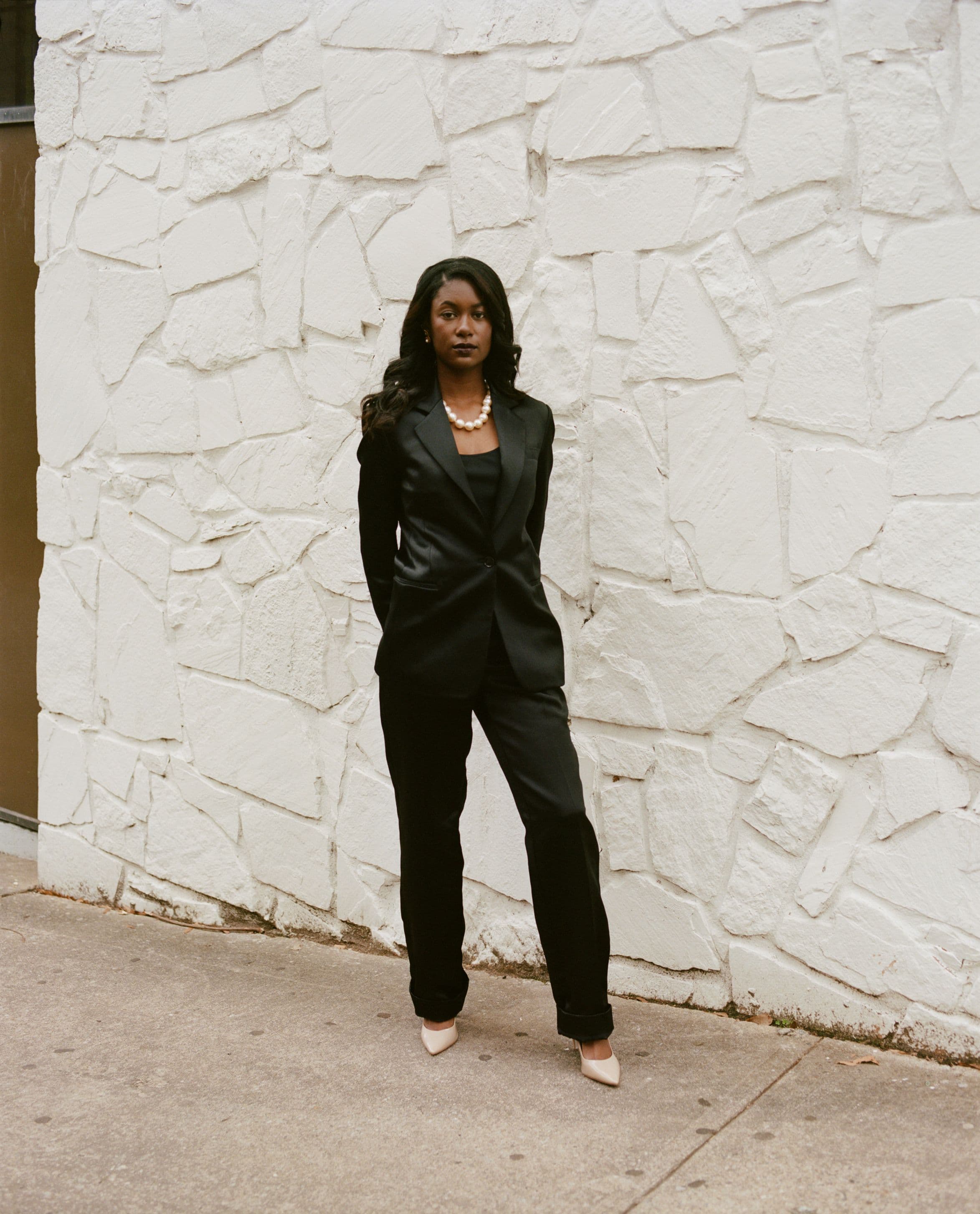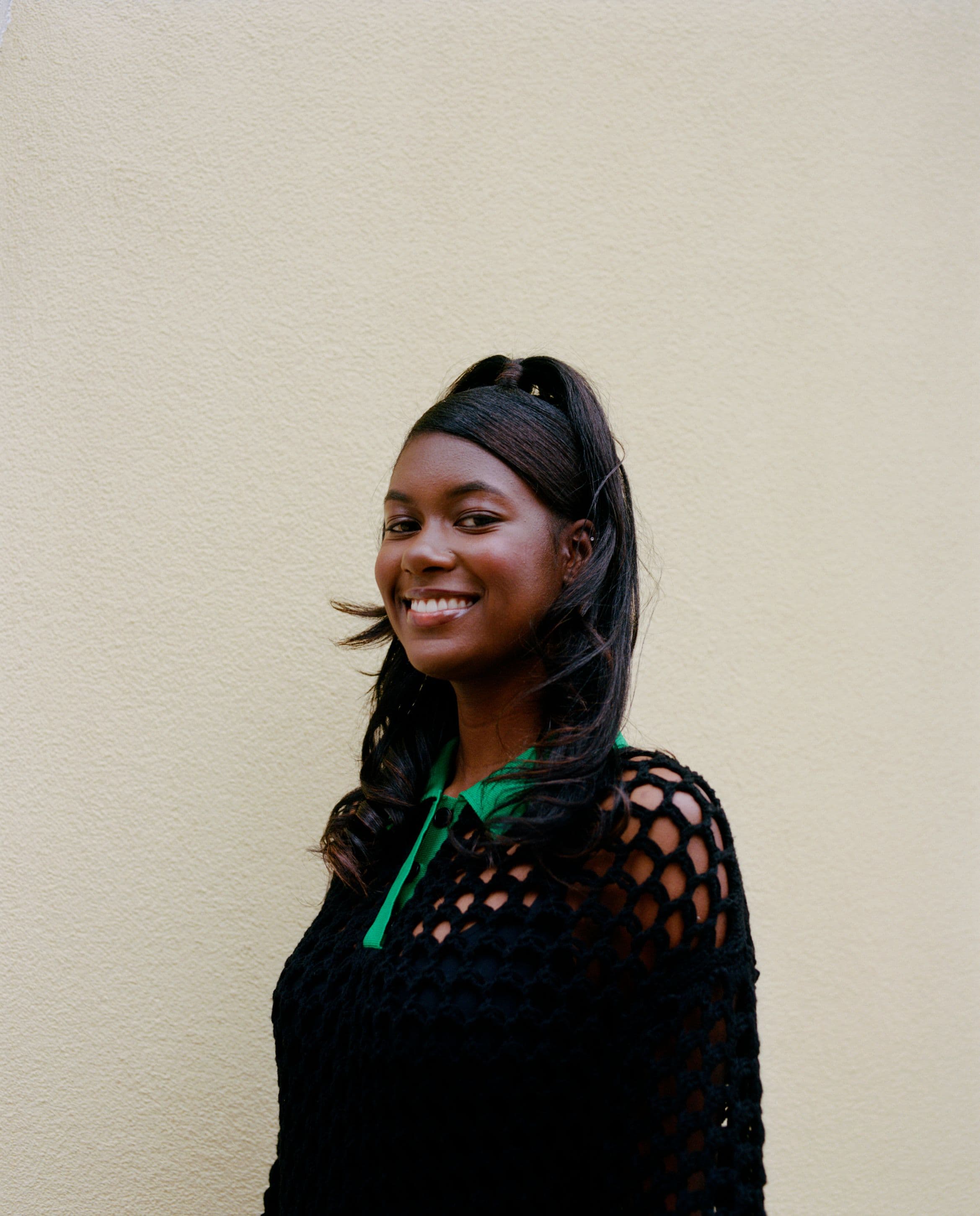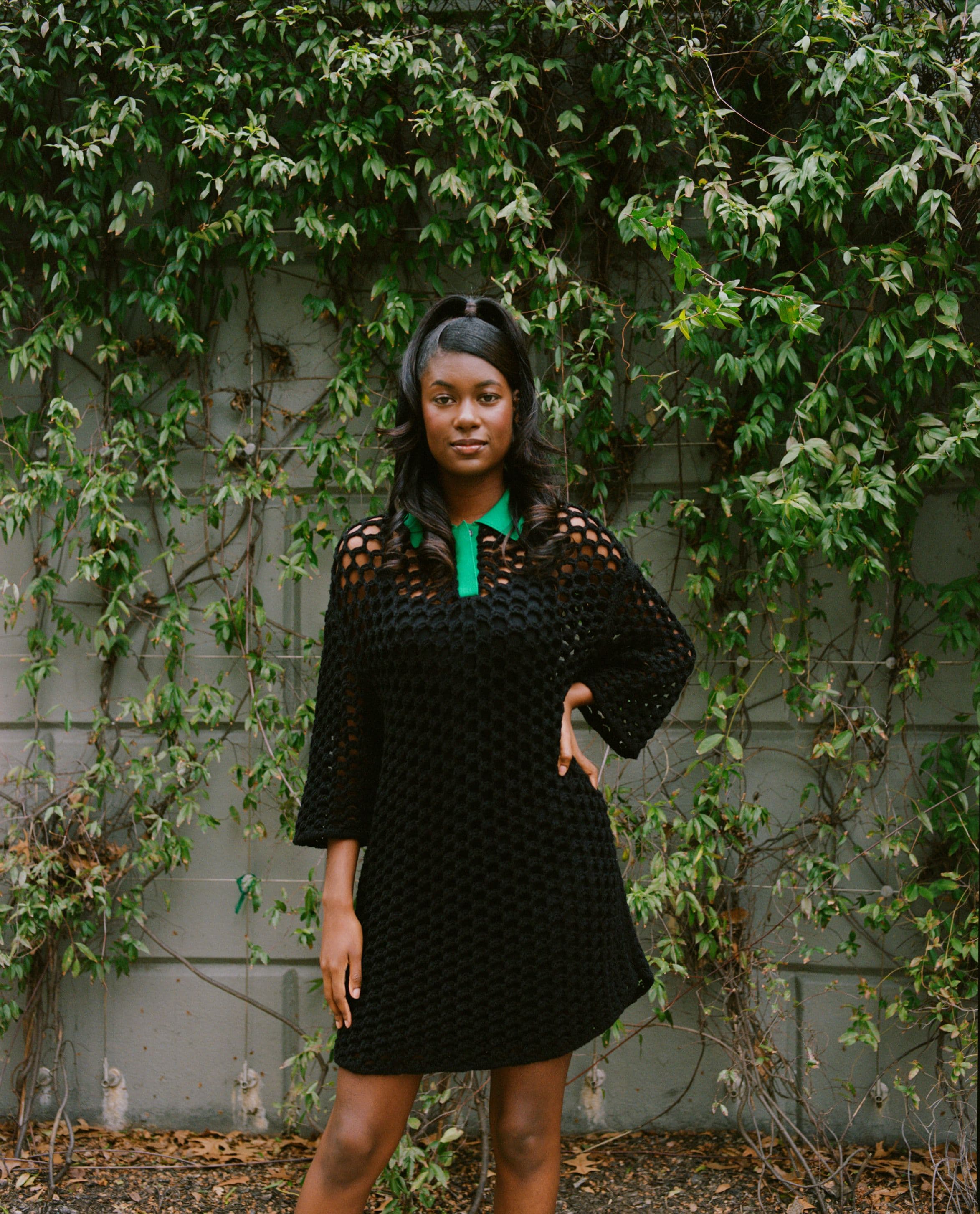
All clothing throughout by 3.1 Phillip Lim. All jewelry throughout, stylist’s own.
Generation Next: Nia Dumas
In the 2020 election cycle, no state proved more paramount to determining the future of the United States than Georgia, which was decided by a margin of fewer than twelve thousand votes in the presidential election, swinging Democratic for the first time since 1992. Two months later, hours before the insurrection at the Capitol demanding the overthrow of President Biden’s victory, the state also flipped both Senate seats, cementing Democratic control of the executive and legislative branches. For Nia Dumas, leader of the Spelman College chapter of the nonpartisan voting rights group Fair Fight U, the historic turnout that led to these results was both galvanizing and redemptive. “So many people, so many activists, so many Black women, so many organizations have spent hundreds of hours to get to where we are,“ she says. “It definitely felt like we lost with Stacey Abrams,“ the Fair Fight founder and Spelman alum who has worked for years on voter turnout and was narrowly defeated in a 2018 gubernatorial race that many criticized as unfair to minority voters, “so to come back tenfold and turn Georgia blue, which hasn’t happened in years, was very historic.“
In fact, Dumas credits Abrams’s earlier run with inspiring her to get involved in voter engagement at a grassroots level in the first place. A native of Virginia who recently finished her junior year as a political science major at Spelman, a historically Black women’s college in Atlanta, Dumas says she was electrified by the energy on campus during Abrams’s historic campaign and felt compelled by her loss to work for change. “That really caught my attention,“ she recalls. “It had me reflect and ask questions like, ’Why didn’t this work out? What does voter suppression mean and how does this affect marginalized communities?’ That really brought me into being involved in politics in Georgia.“
Dumas, who also serves as her student body’s director of leadership and civic engagement, joined Fair Fight U the following summer and began working on voter registration and outreach among her classmates, part of an age group that is notoriously difficult to motivate. “One thing that I really, really got a grasp on from Ms. Abrams and from Fair Fight is that you should meet people where they’re at,“ she explains, whether that means film screenings and information sessions or just concise and urgent Instagram posts. “It’s not always how many panels you have or how many people are coming in to talk to students. It’s just giving students the facts and letting them work with that as they see fit.“

In just the two years Dumas has been working with Fair Fight, she has already noticed a different energy, which she ascribes to a resurgence of political engagement with the Black Lives Matter movement and an election with almost existential consequences. “I think students are fired up. I think students are ready for change,“ she argues. “They’ve seen that policies that have been in place for years are not reflecting what they’re interested in and not reflecting what they want to see going forward. I always say, ’If you don’t get involved and if you don’t do the work and know what’s going on, somebody will do it for you.’ I think students are really realizing that it takes time, it takes work, it takes effort, and we have to stay consistent.“
Given those recent major Democratic victories, Dumas says it’s no surprise to see Republicans in power desperately clamping down on voting rights. The signing of Georgia’s SB 202, significantly restricting access and disproportionately impacting people of color, earlier this spring was yet another reminder that “politics is always evolving, always changing,“ she says. “It’s up to activists and people in these grassroots organizations to continue to fight for free and fair elections because at the end of the day, it doesn’t matter your political affiliation, your race, your class, your creed, your gender, we just want everybody to have the same access to voting as anyone else.“
As she looks forward to the future, when she plans to be either a civil rights lawyer or a diplomat to continue her fight for justice, Dumas says that she keeps herself motivated for the struggle ahead by considering the past. “I honestly think, ’Look how far we’ve come.’ I look at all of the work of civil rights activists and leaders who have put their lives on the line for generations to come,“ she says. “The work that we’re doing now is not just for me, it’s for my kids and my grandkids and other kids that I don’t know in the future to have access to these voting rights. I’m not putting in all this hard work and encouraging all these people to get out and vote and to be as civically engaged as they can just for myself, but it’s to benefit so many people to come. I really attribute my hope to the hope that my ancestors had. There was a lot of tension in the country, but they held onto their hope and they didn’t give up on us. No matter how hard it is, no matter how long it takes, we will continue and we will stay persistent. All of that hope and that drive really propels me to go forward and to hopefully encourage other people as well.“
Read this story and many more in print by ordering our inaugural issue here. See the full Generation Next series here.

As a nonprofit arts and culture publication dedicated to educating, inspiring, and uplifting creatives, Cero Magazine depends on your donations to create stories like these. Please support our work here.






